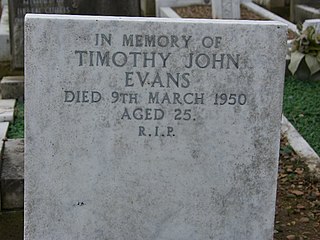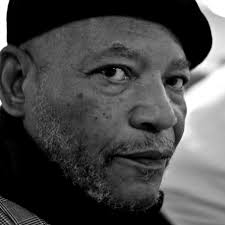Ray Krone (born January 19, 1957) is an American who was wrongfully convicted of murder. [1] He was the 100th inmate exonerated from death row since the death penalty in the United States was reinstated in 1976. [2]
Krone was born and raised in Dover Township, York County, Pennsylvania and graduated from Dover Area High School in 1974. [3] [4]
He was labeled the "Snaggletooth Killer" (a feature which has since been corrected) and spent 10 years in prison, including two years on death row, after being found guilty of killing a bartender in Phoenix, Arizona in 1991. [5] Kim Ancona, who was 35 years old, was found dead in a bar where Krone often played darts. The 1992 conviction, which was upheld on appeal in 1996, hinged on expert testimony, included claiming an impression of Krone's teeth matched bite marks found on the victim's body, a detail that was disputed by dental experts called by the defense in court.
On April 8, 2002, Krone was released from prison after DNA evidence proved that he did not murder the victim and identified the killer: Kenneth Phillips, a repeatedly violent sexual offender. Journalist Robert Nelson later wrote that ample crime scene evidence and interviews should have excluded Krone as a suspect, and all pointed toward Phillips, but this data were ignored by the police and the prosecution's purported experts. [2] In 2005, Krone received a settlement of $1.4 million from Maricopa County and $3 million from the city of Phoenix. [6]
Since Krone's release, he has become an activist working for the abolition of the death penalty, and he is the director of Membership and Training for Witness to Innocence. On July 10, 2003, his case became one of the episodes of Forensic Files (season 8, episode 7 "Once Bitten"). In February 2005, he was featured in episodes 13 and 14 of the third season of the reality television show Extreme Makeover . His story is detailed in Jingle Jangle: The Perfect Crime Turned Inside Out, written by Jim Rix, his cousin, who was instrumental in getting him freed from prison.
Innocence Project, Inc. is a 501(c)(3) nonprofit legal organization that is committed to exonerating individuals who have been wrongly convicted, through the use of DNA testing and working to reform the criminal justice system to prevent future injustice. The group cites various studies estimating that in the United States between 1% and 10% of all prisoners are innocent. The Innocence Project was founded in 1992 by Barry Scheck and Peter Neufeld who gained national attention in the mid-1990s as part of the "Dream Team" of lawyers who formed part of the defense in the O. J. Simpson murder case.

A miscarriage of justice occurs when an unfair outcome occurs in a criminal or civil proceeding, such as the conviction and punishment of a person for a crime they did not commit. Miscarriages are also known as wrongful convictions. Innocent people have sometimes ended up in prison for years before their conviction has eventually been overturned. They may be exonerated if new evidence comes to light or it is determined that the police or prosecutor committed some kind of misconduct at the original trial. In some jurisdictions this leads to the payment of compensation.
Anthony Porter was a Chicago resident known for having been exonerated in 1999 of the murder in 1982 of two teenagers on the South Side of the city. He was convicted and sentenced to death in 1983, and served 17 years on death row. He was exonerated following introduction of new evidence by Northwestern University professors and students from the Medill School of Journalism as part of their investigation for the school's Innocence Project. Porter's appeals had been repeatedly rejected, including by the US Supreme Court, and he was once 50 hours away from execution.
Kirk Noble Bloodsworth is a former Maryland waterman and the first American sentenced to death to be exonerated post-conviction by DNA testing.
Wrongful execution is a miscarriage of justice occurring when an innocent person is put to death by capital punishment. Cases of wrongful execution are cited as an argument by opponents of capital punishment, while proponents say that the argument of innocence concerns the credibility of the justice system as a whole and does not solely undermine the use of the death penalty.

The Innocent Man: Murder and Injustice in a Small Town is a 2006 true crime book by John Grisham, his only nonfiction title as of 2020. The book tells the story of Ronald 'Ron' Keith Williamson of Ada, Oklahoma, a former minor league baseball player who was wrongly convicted in 1988 of the rape and murder of Debra Sue Carter in Ada and was sentenced to death. After serving 11 years on death row, he was exonerated by DNA evidence and other material introduced by the Innocence Project and was released in 1999.
Exoneration occurs when the conviction for a crime is reversed, either through demonstration of innocence, a flaw in the conviction, or otherwise. Attempts to exonerate convicts are particularly controversial in death penalty cases, especially where new evidence is put forth after the execution has taken place. The transitive verb, "to exonerate" can also mean to informally absolve one from blame.
This is a list of notable overturned convictions in the United States.
Earl Washington Jr. is a former Virginia death-row inmate, who was fully exonerated of murder charges against him in 2000. He had been wrongfully convicted and sentenced to death in 1984 for the 1982 rape and murder of Rebecca Lyn Williams in Culpeper, Virginia. Washington has an IQ estimated at 69, which classifies him as intellectually disabled. He was coerced into confessing to the crime when arrested on an unrelated charge a year later. He narrowly escaped being executed in 1985 and 1994.
Witness to Innocence (WTI) is a non-profit organization based out of Philadelphia, Pennsylvania, dedicated to the effort of abolishing the death penalty in the United States. WTI began as a project of The Moratorium Campaign, led by Jené O'Keefe. Kurt Rosenberg took over in 2005 with sponsorship from Sister Helen Prejean, Witness to Innocence is the only nationwide organization composed of exonerated former death row prisoners, men who were sentenced to death only to later have their innocence revealed. WTI supports these exonerated death row survivors through semi-annual retreats and by running a speakers' bureau.

Delbert Lee Tibbs was an American man who was wrongfully convicted of murder and rape in 1974 in Florida and sentenced to death. Later exonerated, Tibbs became a writer and anti-death penalty activist.
The National Registry of Exonerations is a project of the University of Michigan Law School, Michigan State University College of Law and the University of California Irvine Newkirk Center for Science and Society. The Registry was co-founded in 2012 with the Center on Wrongful Convictions at Northwestern University School of Law to provide detailed information about known exonerations in the United States since 1989. As of February 6, 2020, the Registry has 2,551 known exonerations in the United States since 1989. The National Registry does not include more than 1,800 defendants cleared in 15 large-scale police scandals that came to light between 1989 and March 7, 2017, in which officers systematically framed innocent defendants.
The Illinois Innocence Project, a member of the national Innocence Project network, is a non-profit legal organization that works to exonerate wrongfully convicted people and reform the criminal justice system to prevent future injustice.

The California Innocence Project is a non-profit based at California Western School of Law in San Diego, California, United States, which provides pro bono legal services to individuals who maintain their factual innocence of crime(s) for which they have been convicted. It is an independent chapter of the Innocence Project. Its mission is to exonerate wrongly convicted inmates through the use of DNA and other evidences.

Investigating Innocence is a nonprofit wrongful conviction advocacy organization that provides criminal defense investigations for inmates in the United States. Investigating Innocence was founded in 2013 by private investigator Bill Clutter to assist nationwide Innocence Project groups in investigating innocence claims. "Once we have a case that meets our criteria, we'll put private investigators to work on it. A lot of these cases need investigators," said Kelly Thompson, executive director of Investigating Innocence. Prior to his work on Investigating Innocence, Clutter was one of the founders of the Illinois Innocence Project. Investigating Innocence also has a board composed of exonerees that reviews incoming cases.

Anthony Charles Graves is the 138th exonerated death row inmate in America. With no record of violence, he was arrested at 26 years old, wrongfully convicted, and incarcerated for 18 years before finally being exonerated and released. He was awarded $1.4 million for the time he spent imprisoned, and the prosecutor who put him in prison was ultimately disbarred for concealing exculpatory evidence and using false testimony in the case.

Nicholas James Yarris is an American writer and storyteller who spent 22 years on death row in Pennsylvania after being wrongfully convicted of murder.

Bill Clutter is an American private investigator, wrongful conviction advocate, and author. He is the co-founder of the Illinois Innocence Project and founder of the national wrongful conviction organization Investigating Innocence. His work on the Donaldson v. Central Illinois Public Service Company case led him to write the book Coal Tar: How Corrupt Politics and Corporate Greed Are Killing America's Children, which is the story of an epidemic of neuroblastoma in Taylorville, IL caused by exposure to coal tar.